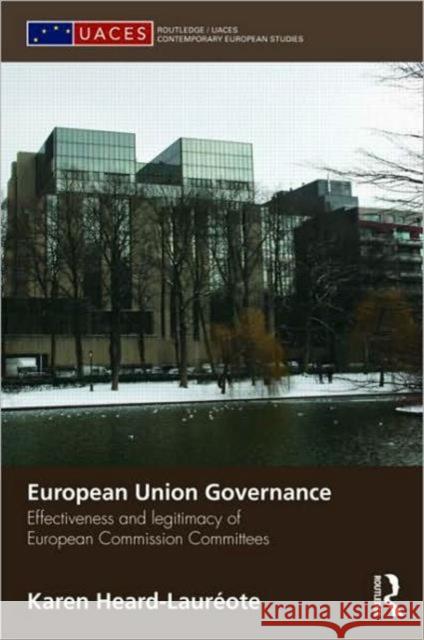European Union Governance: Effectiveness and Legitimacy in European Commission Committees » książka
European Union Governance: Effectiveness and Legitimacy in European Commission Committees
ISBN-13: 9780415435826 / Angielski / Twarda / 2009 / 264 str.
European Union Governance: Effectiveness and Legitimacy in European Commission Committees
ISBN-13: 9780415435826 / Angielski / Twarda / 2009 / 264 str.
(netto: 699,68 VAT: 5%)
Najniższa cena z 30 dni: 705,23
ok. 16-18 dni roboczych.
Darmowa dostawa!
The European Commission has increasingly focused on the benefits it can derive from the greater participation of organized civil society in its role and activities. In the face of general decline in public trust in the institutions of government, it facilitated and encouraged new channels of access and consultation opportunities as a means to legitimize its position within the European political system. Karen Heard-Laureote's comparative analysis of four European Commission advisory forums innovatively investigates the existence of a conflict between the capacities of such forums to deliver standards of good governance. The author questions whether these venues can provide efficiency gains via the production of sufficient policy output without delays or deadlocks at reasonable cost and sustain adequate democratic credentials such as legitimacy. This study makes a significant contribution to its field by pursuing contemporary legitimacy debates asking whether under certain conditions or in certain policy-making contexts, legitimacy and efficiency may be reconciled or become at least partially compatible in European Commission committees. European Union Governance will be of interest to students and researchers of European Union politics and policy-making.
Through a comparative analysis of three European Commission advisory committees comprising organized civil society actors, this volume investigates the existence of a dichotomy between the capacity of European Commission committee governance to improve system effectiveness and provide efficiency gains as well as sustain adequate democratic credentials.
Karen Heard-Laureote asks whether under certain conditions or in certain policy-making contexts, legitimacy and efficiency may be reconciled or become at least partially compatible in European Commission committees. The main argument is that in committees functioning under the auspices of DG Agriculture, there is an improper balance between these two dimensions to the disfavour of legitimacy. Indeed, significant deficits are apparent. However, committees attached to DG Environment and DG Trade are better able to provide added-value, both in terms of efficiency and legitimacy. The primary aim is to understand the nature of this difference.
European Union Governance will be of interest to students and researchers of European Union politics and policy-making.











